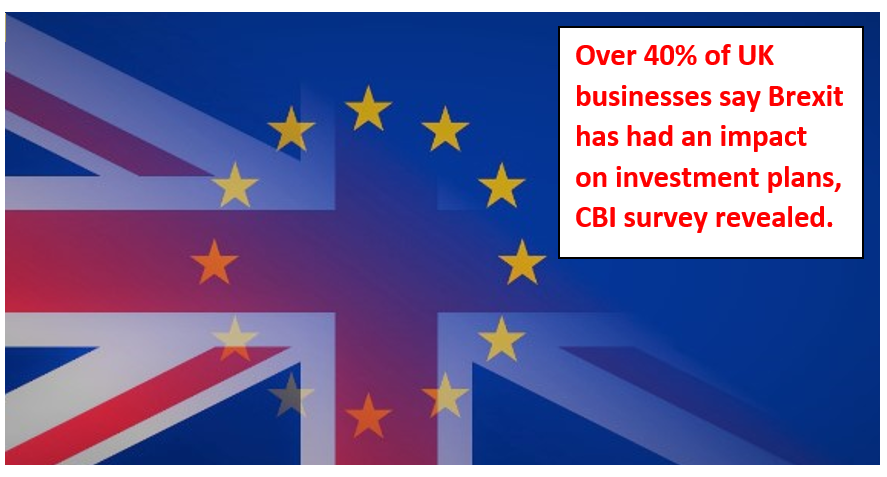Businesses are holding off from investing in Britain over uncertainty regarding Brexit and the future of UK-EU relations, Chancellor Philip Hammond said on the BBC’s Andrew Marr Show.
“It is absolutely clear businesses where they have discretion over investment, where they can hold off, are doing so – you can understand why.
“They are waiting for more clarity about what the future relationship with Europe will look like,” Hammond told the BBC.
The Chancellor’s comments come after a survey by the Confederation of British Industry (CBI) revealed that over 40% of businesses in the UK believe Brexit has affected their investment decisions. Of those, 98% reported that the impact has been negative. Rain Newton-Smith, CBI Chief Economist, said: “Across the UK, there are numerous examples of businesses and sectors thriving and providing jobs and growth in local communities. It is reassuring that the majority of businesses that responded to our survey do not feel that Brexit has changed these vital spending plans.
Rain Newton-Smith, CBI Chief Economist, said: “Across the UK, there are numerous examples of businesses and sectors thriving and providing jobs and growth in local communities. It is reassuring that the majority of businesses that responded to our survey do not feel that Brexit has changed these vital spending plans.
“To help British business remain optimistic and keep uncertainty at bay, the Government must work quickly to agree the terms of the transition and future trading arrangements.
“That’s why the CBI has suggested staying in the single market and a customs union until a final deal comes into force. This is the simplest way of ensuring companies don’t face a damaging cliff-edge and that trade flows can continue without disruption,” he added.
Hammond told the BBC’s Andrew Marr Show that the government is becoming more convinced on the need for a transitional arrangement to be made, saying it would be “right and sensible both for the UK and EU”.
“Five weeks ago the idea of a transition period was quite a new concept, I think now you would find that pretty much everybody around the cabinet table accepts that there will be some kind of transition,” he said.
“We’re into a real process now with the start of negotiations and I think you’ll find the cabinet rallying around a position that maximises our negotiating leverage and gets the best possible deal for Britain.”
